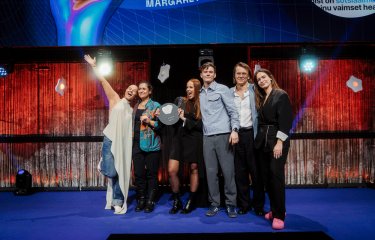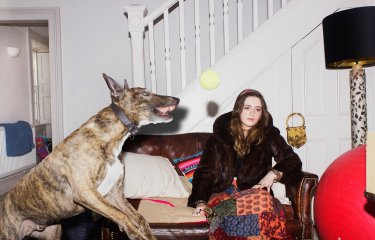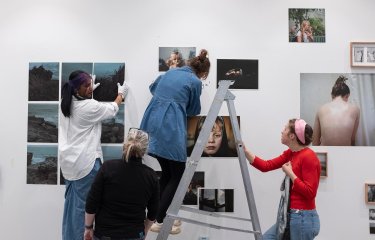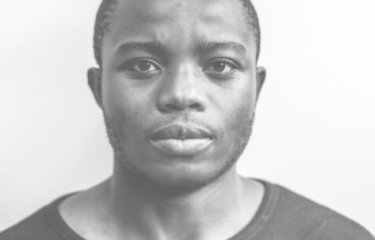How the Games Academy helped this graduate realise her creative potential
17 February 2022

Madison Riley tells us how her degree helped her accelerate into the games industry.
Game Development: Art BA(Hons) graduate Madison's modelling skills are now featured in high-profile games such as Need for Speed: Hot Pursuit Remastered. We caught up with the rising star to learn a bit more about her time at Falmouth and her plans for the future.
What was your first impression of Falmouth University?
I loved the campus and the general vibe when I visited Falmouth. I’d heard lots of great things from students in the year above me, as we’d known each other from Priestley College where I’d completed a BTEC in Games Design. The Falmouth course seemed to be the best in terms of gaining relevant experience for the career I wanted.
The Games Academy building was a brilliant facility to learn in. Other students and peers were wonderful at showing us different techniques and offering feedback to help us improve. The showcases and events the Academy put on were a real highlight – a chance for students to get together and celebrate each other’s work.
How did your course help you find your passion?
When I began exploring 3D environment art, my passion for stylised modelling emerged. I knew it was the area I wanted to focus on, but I researched multiple styles and methods of modelling to maintain a well-rounded portfolio. The lecturers were really helpful in guiding me towards resources and learning opportunities to develop my skills.
How did you get your break in the industry?
Graduating during the pandemic was a challenge, but I just kept chipping away at finding a job. Freelancing for an indie game was a great opportunity to practice time management and some of the other skills I’d gained on the course.
By working on my projects and sharing updates on social media, I got an interview with Lucid Games. I’ve been there ever since, working alongside some super-talented game developers.
Can you give us an insight to your creative process? And what has your experience of working in the industry been like so far?
I usually start by finding inspiration and reference, and then drafting up some assets before creating the final model, using tools such as Adobe Photoshop and Substance 3D suite, ZBrush and Maya.
There are fewer women in the gaming industry, but that’s more of a reason to get involved and help make this change.
Both the industry and game art community are full of lovely people willing to share methods, techniques and workflows and the Falmouth Games Academy is especially welcoming.
The industry needs people of different genders and backgrounds to create amazing game experiences!




